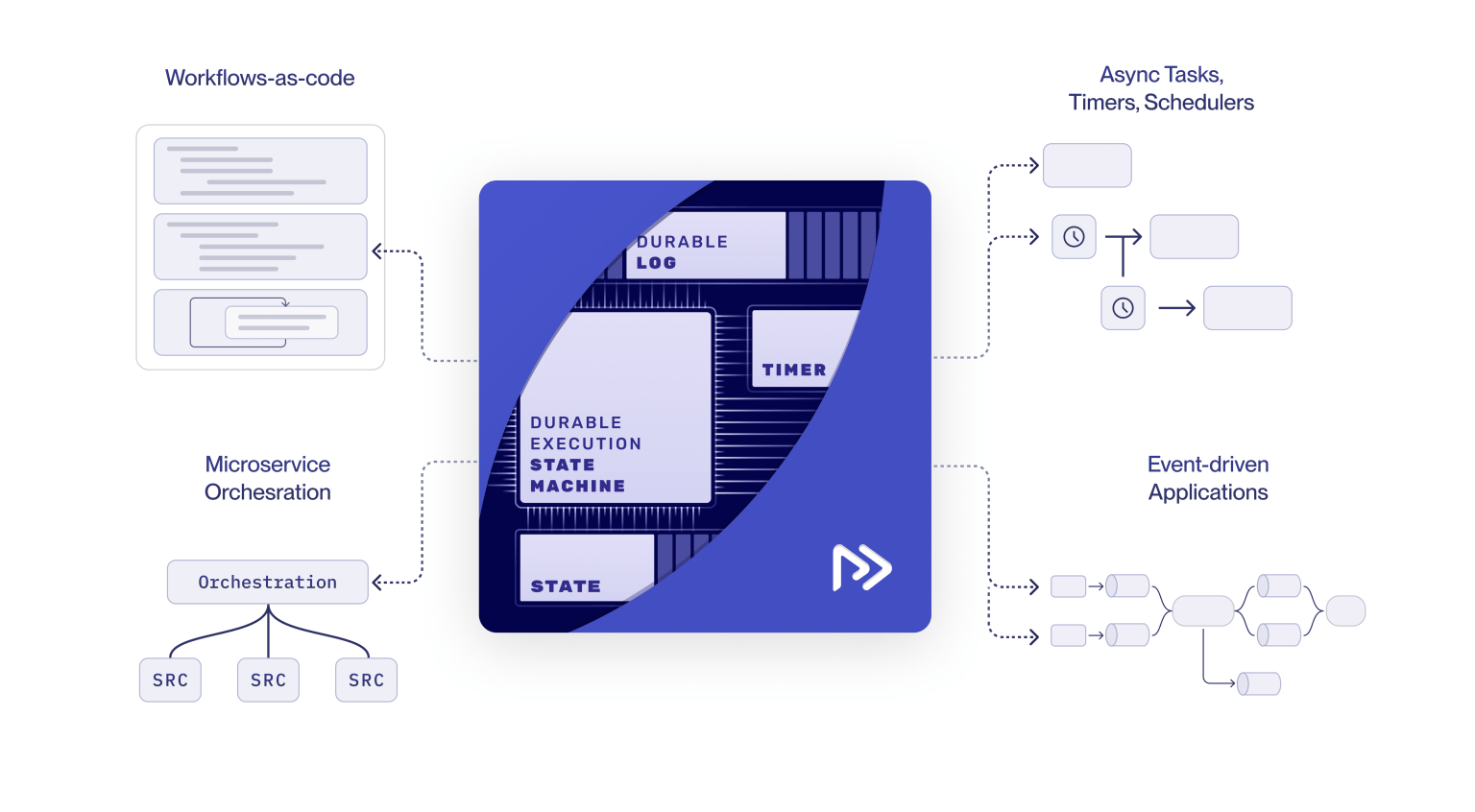When one of the co-creators of the popular open-source stream-processing framework Apache Flink launches a new startup, it’s worth paying attention. Stephan Ewen was among the founding team of the open source project back in 2010 and then later became the CTO of Data Artisans, which aimed to monetize Flink. Alibaba then acquired the company in 2019 and rebranded it as Ververica, with Ewen then spending the requisite three years at the company before launching workflows-as-code startup Restate, together with Flink committers and former Data Artisan/Ververica co-workers Igal Shilman and Till Rohrmann.
Restate, which says its overall mission is to make distributed application development easier, today announced that it has raised a $7 million seed funding round, hitting version 1.0 of its open BSL-licensed version and that it’s launching its managed cloud service.
The promise of Restate is that it is so fast and lightweight that it will allow developers to use it where traditional workflow systems would’ve been too slow and resource-intensive. That’s backed by a durable execution engine that can set up fault-tolerant communication between services and processes, and that integrates with function-as-a-service platforms like AWS Lambda and Cloudflare Workers. While ideal for microservices architecture, developers can also use it for task queues, event processing, or service orchestration in systems like inventory management or reservations.
It’s worth noting that Restate isn’t the first to this concept, though. The open-source platform Temporal, for example, offers a somewhat similar feature set, though the Restate team would likely argue that its system is faster and more lightweight.
Ewen said after thirteen years with Flink, it was time to tackle a new problem.. “While we were working on Flink, we had this set of use cases that kept coming up, where folks were kind of abusing Flink for transactional orchestration style-use cases,” he told me. “And it was not great when they used it for that, but they told us they didn’t find anything else.”
After seeing users do this again and again, the team decided that if they were going to build another company, they’d look into how they could solve this problem more elegantly.
Virtually every modern application today consists of chains of workflows that are handled by a distributed set of services that have to reliably talk to each other. It takes a very experienced team to build a fault-tolerant distributed system like that — and many companies build their own — but it’s also table stakes and not something that’s necessarily going to help those companies differentiate their product.

Looking at this, Ewen told me, the team took some of the stream-based processing ideas from Flink and then combined that with the workflows-as-code concept and a specialized event log — because at the core of every workflow engine is a log. “Restate takes the workflow-as-code idea and adds a few other somewhat stream-processing-inspired ideas. We evolved it into a more general-purpose distributed programming model based on durable execution, virtual objects and durable promises — and put it on an event-driven foundation,” Ewen said.
The engine that powers that is very small and lightweight and, Ewen stressed, fast — in part because it ships as a single binary. He believes this will make the service usable in situations where you’d not classically use a workflow engine — think e-commerce shopping carts, for example. A lightweight workflow engine, with its built-in guarantees, durable execution and retries if things go wrong, ensures that items in an abandoned shopping cart are released back to other customers after a set time, for example, minimizing the risk of something failing in the process.
“[Restate] does the classical workflows code things, just on an extremely lightweight foundation — and it goes a little further than just standard workflow use cases. It incorporates communication and state management as a core concept, so you can really use it to also build things that are not good cases for workflows but still fit very well if you want to build a proper microservice architecture,” Ewen explained.
The company also today launched its hosted Restate Cloud into early access. For now, it’s available for free and Ewen was quite open about the fact that the team is still trying to figure out how people will use it before deciding on how to monetize the service.
The company’s funding round was led by Redpoint Ventures, with participation from Essence VC, firstminute.capital and angels like Datadog founder Oli Pomel and Apache Kafka and Confluent founders Jay Kreps and Neha Narkhede. The company will use the funding to hire and build out its infrastructure, as well as to bring its SDK to more languages (it currently supports TypeScript, Java and Kotlin).
“It’s still challenging to make distributed transactional applications correct, resilient, and scalable,” said Kreps. “Restate’s approach of marrying durable execution and event-driven architectures is a big step towards fixing that.”
